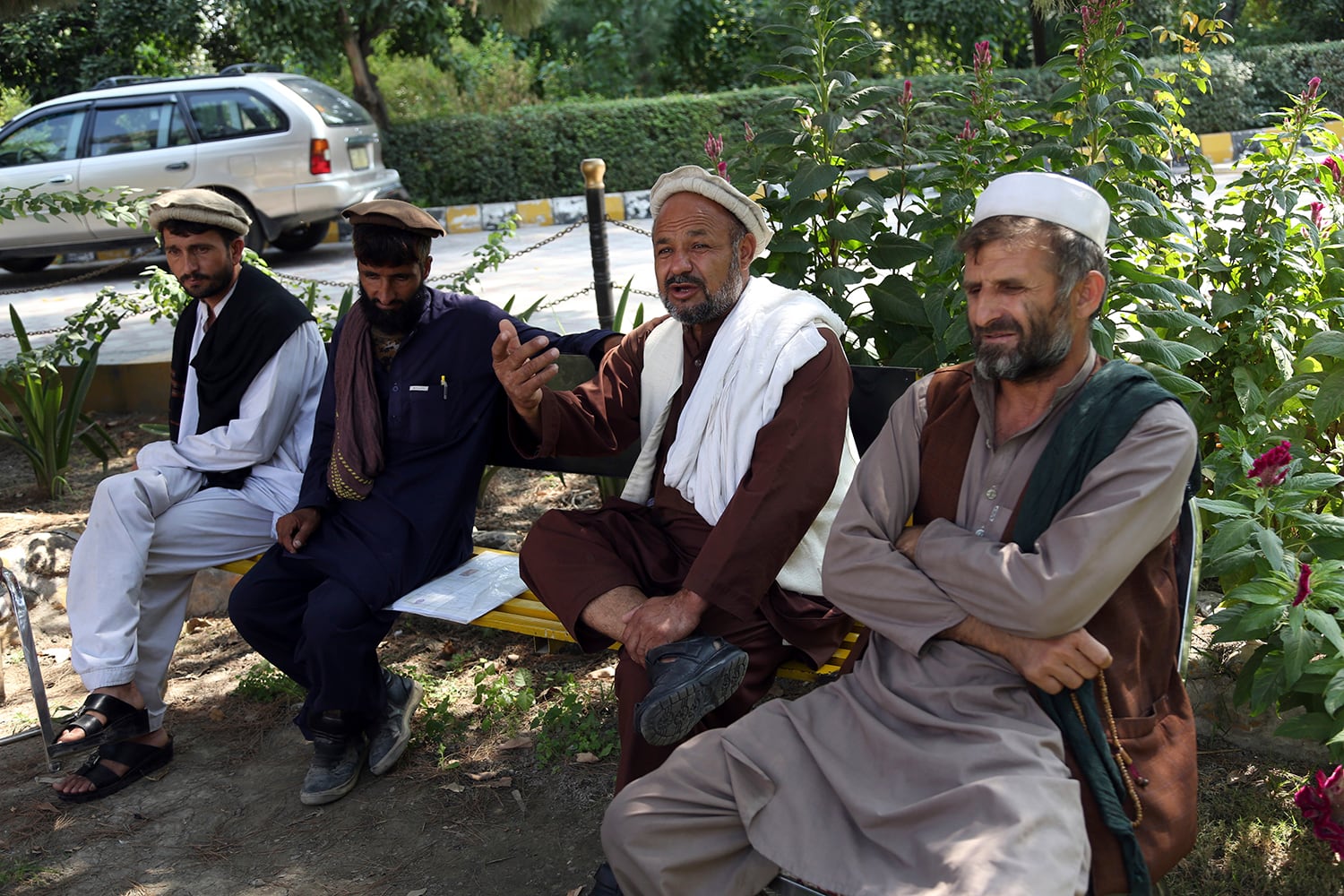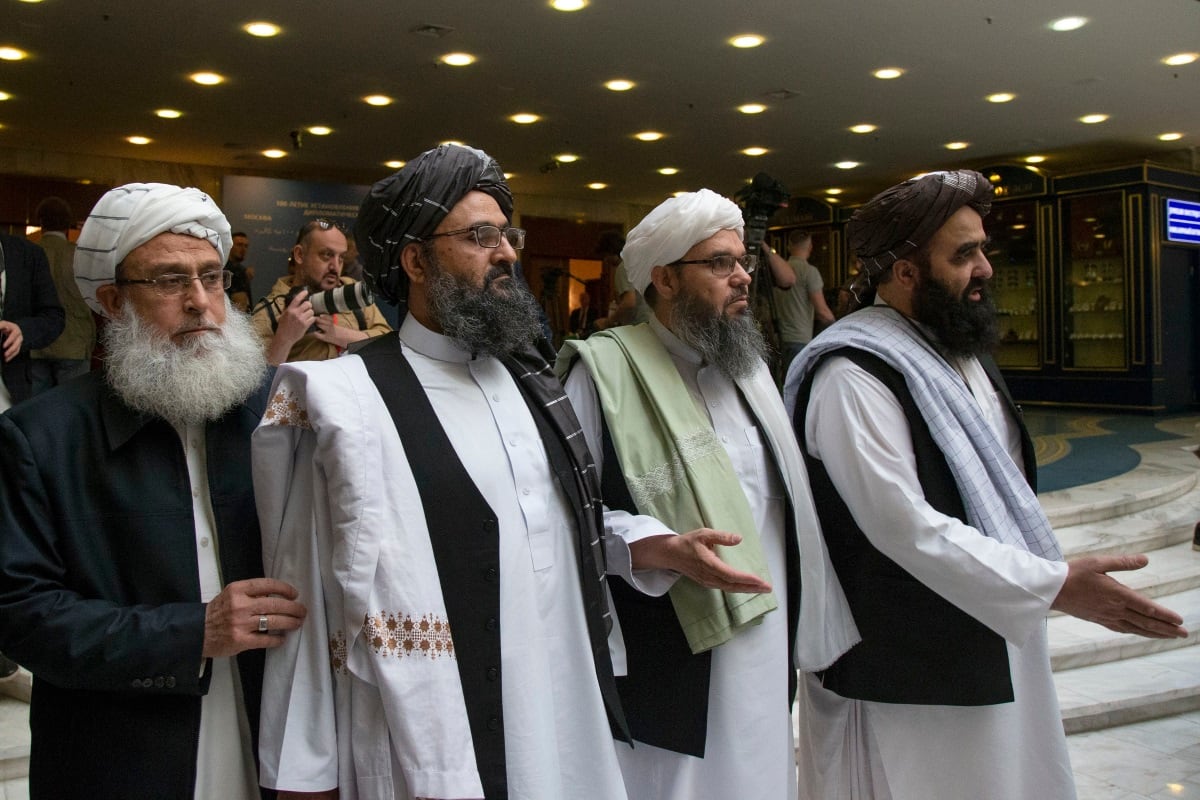KABUL, Afghanistan — Afghan civilians are dying in record numbers in the country’s increasingly brutal war, noting that more civilians died in July than in any previous one-month period since the U.N. began keeping statistics, according to a U.N. report released Thursday.
The report also said that for the first time this year insurgents were responsible for more casualties than U.S. and pro-government forces.
Tadamichi Yamamoto, the U.N. secretary-general’s special representative for Afghanistan, said neither side is doing enough to protect civilians.
The report said 2,563 civilians were killed and 5,676 were wounded in the first nine months of this year. Insurgents were responsible for 62 percent. July to September were the deadliest months so far this year.
“Civilian casualties at record-high levels clearly show the need for all parties concerned to pay much more attention to protecting the civilian population, including through a review of conduct during combat operations,” said Yamamoto.
“Civilian casualties are totally unacceptable, especially in the context of the widespread recognition that there can be no military solution to the conflict in Afghanistan” he added.
RELATED

The U.N. report said that pro-government forces caused 2,348 civilian casualties, including 1,149 killed and 1,199 wounded, a 26 percent increase from the same period in 2018.
Besides detailing civilian casualties and their causes, U.N.'s latest report indicates that 41 percent of all civilian casualties in Afghanistan were women and children. In the first nine months this year, a total of 261 women and 631 children were killed.
“The impact of Afghanistan’s conflict on civilians is appalling; every verified number is a person, someone’s relative - mother, father, daughter, son,” said Fiona Frazer, the U.N. Assistance Mission in Afghanistan’s Human Rights Chief. “The United Nations will continue its advocacy work with all parties to the conflict until Afghanistan reaches the only acceptable number of civilians killed and injured in the conflict: zero.”
Efforts have been stepped up to restart talks to end Afghanistan’s 18-year war.
Earlier this month, U.S. peace envoy Zalmay Khalilzad visited Pakistan, where he met with the Taliban’s top negotiator, Mullah Abdul Ghani Baradar, a co-founder of the hard-line Taliban movement and head of a Taliban delegation to the Pakistani capital.
The Taliban said they were in Islamabad to discuss the condition of roughly 1.5 million Afghan refugees living in the city. U.S. officials said Khalilzad was in the Pakistani capital to follow up on talks he held in September in New York with Pakistani officials, including Prime Minister Imran Khan.
They insisted Khalilzad was not in Pakistan to restart U.S.-Taliban peace talks — at least not yet.
RELATED

The meeting was significant and the first that Khalilzad has held with the Taliban since last month, when President Donald Trump declared that the talks were “dead,” blaming an uptick in violence by the Taliban that included the killing of a U.S. soldier.
Earlier this week in a special report the U.N. described the severe toll of election-related violence on Afghanistan’s civilians. A total of 85 people killed during the process with 28 killed on the polling day across the country.
Afghans voted on Sept. 28 despite the militants’ threats and violence. However, the polling was marred by widespread misconduct and accusations of fraud.
Meanwhile, in eastern Nuristan Province, Taliban fighters stormed a police checkpoint, killing at least six Afghan security personal, said Ismail Atekan, a parliamentarian form Nuristan. He added that two policemen arrested by the insurgents during Thursday morning’s attack in Nurgram district.
Zabihullah Mujahid, Taliban’s spokesman claimed responsibility.
In a separate report form the capital Kabul, a government employee was shot and killed by gunmen, the Finance Ministry said in a statement.
Zenatullah Zabi’s body was found Wednesday afternoon after he was kidnapped earlier the same day form Kabul, the statement said.
No one immediately claimed responsibility for the attack in Kabul.





